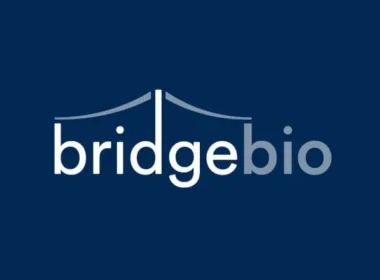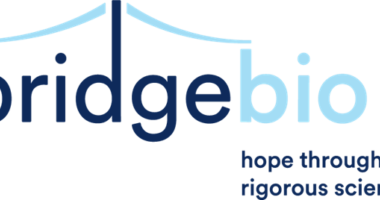PALO ALTO, Calif., Nov. 03, 2025 (GLOBE NEWSWIRE) — BridgeBio Pharma, Inc. (Nasdaq: BBIO) (“BridgeBio” or the “Company”), a new type of biopharmaceutical company focused on genetic diseases, announced today that ten moderated digital posters will be shared at the American Heart Association (AHA) Scientific Sessions 2025, taking place in New Orleans, LA from November 7 – 10, 2025. Moderated Digital Posters: Acoramidis Effect on All-Cause Mortality in Patients with p.V142I (V122I) Variant ATTR-CM: Findings from the ATTRibute-CM StudyPresenter: Marianna Fontana, M.D., University College London, UKDate/time: Saturday, November 8 at 3:15 pm CT Acoramidis Reduces All-Cause Mortality and First Cardiovascular Hospitalization in Patients with Variant Transthyretin Amyloid Cardiomyopathy: Results from the ATTRibute-CM StudyPresenter: Prem Soman, M.D., Ph.D., University of Pittsburgh School of Medicine, U.S.Date/time: Saturday, November 8 at 9:15 am CT Acoramidis Reduces All-Cause Mortality and Cardiovascular-Related Hospitalizations Through Month 42 in Transthyretin Amyloid Cardiomyopathy Across All Pre-specified Patient SubgroupsPresenter: Lily Stern, M.D., Cedars-Sinai Heart Institute, U.S.Date/time: Saturday, November 8 at 3:15 pm CT Acoramidis Lowers NT-proBNP in a Larger Proportion of ATTRibute-CM Study Participants with Transthyretin Amyloid Cardiomyopathy Compared with Placebo, Independent of Atrial Fibrillation StatusPresenter: Mathew Maurer, M.D., Columbia University Irving Medical Center, U.S.Date/time: Saturday, November 8 at 9:15 am CT Demographic Disparities in Tafamidis Treatment and Clinical Outcomes Across the United StatesPresenter: Nicole Cyrille-Superville, M.D., Atrium Health Sanger Heart & Vascular Institute Kenilworth, Charlotte, NC, U.S.Date/time: Saturday, November 8 at 12:15 pm CT Geographic Disparities in Transthyretin Amyloid Cardiomyopathy Prevalence in United States VeteransPresenter: Sandesh Dev, M.D., Southern Arizona VA Health Care System, U.S.Date/time: Saturday, November 8 at 3:15 pm CT Serum Transthyretin Levels at Day 28 are Associated with Cardiovascular Outcomes: Insights from the ATTRibute-CM StudyPresenter: Nitasha Sarswat, M.D., UChicago Medicine, U.S.Date/time: Sunday, November 9 at 3:15 pm CT Acoramidis Improved Clinical Outcomes, Function, Quality of Life and NT-proBNP in Patients with Transthyretin Amyloid Cardiomyopathy Regardless of Atrial Fibrillation Status at BaselinePresenter: Richard Cheng, M.D., University of Washington, Seattle, WA, U.S.Date/time: Sunday, November 9 at 3:15 pm CT Acoramidis Reduces the Risk of All-Cause Mortality and Cardiovascular-Related Hospitalization Compared with Placebo in Participants with Transthyretin Amyloid Cardiomyopathy and Early-Stage Heart Failure Regardless of Atrial Fibrillation History: Insights from ATTRibute-CM Presenter: Ronald Witteles, M.D., Stanford University School of Medicine, U.S.Date/time: Saturday, November 8 at 3:15 pm CT Vutrisiran Healthcare Resource Utilization, Costs, Discontinuation, and Mortality: A Retrospective Database Analysis Presenter: Nicole Bart, M.D., Ph.D., St Vincent’s Hospital Sydney, AUDate/time: Monday, November 10 at 10:45 am CT About Attruby™ (acoramidis) INDICATIONAttruby is a transthyretin stabilizer indicated for the treatment of the cardiomyopathy of wild-type or variant transthyretin-mediated amyloidosis (ATTR-CM) in adults to reduce cardiovascular death and cardiovascular-related hospitalization. IMPORTANT SAFETY INFORMATION Adverse ReactionsDiarrhea (11.6% vs 7.6%) and upper abdominal pain (5.5% vs 1.4%) were reported in patients treated with Attruby versus placebo, respectively. The majority of these adverse reactions were mild and resolved without drug discontinuation. Discontinuation rates due to adverse events were similar between patients treated with Attruby versus placebo (9.3% and 8.5%, respectively). About BridgeBioBridgeBio Pharma (BridgeBio; Nasdaq: BBIO) is a new type of biopharmaceutical company founded to discover, create, test, and deliver transformative medicines to treat patients who suffer from genetic diseases. BridgeBio’s pipeline of development programs ranges from early science to advanced clinical trials. BridgeBio was founded in 2015 and its team of experienced drug discoverers, developers and innovators are committed to applying advances in genetic medicine to help patients as quickly as possible. For more information visit bridgebio.com and follow us on LinkedIn, X, Facebook, Instagram, and YouTube. BridgeBio Media Contact:Bubba Murarka, Executive Vice President, Corporate Developmentcontact@bridgebio.com (650)-789-8220 BridgeBio Investor Contact:Chinmay Shukla, Senior Vice President, Strategic Financeir@bridgebio.com
Tag: BridgeBio
BridgeBio Reports Third Quarter 2025 Financial Results and Business Updates
-$120.7 million in total third quarter revenue, comprised of $108.1 million of U.S. Attruby® net product revenue, $4.3 million from royalty revenue, and $8.3 million in license and services revenue -As of October 25, 2025, 5,259 unique patient prescriptions have been written by 1,355 unique prescribers, representing an accelerating launch driven by strong month over month growth in the crucial treatment naïve patient segment -Attruby continues to differentiate clinically by proving its unique profile in new subpopulations and holistic analyses: -JACC publication demonstrated the effect of Attruby on cumulative cardiovascular outcomes within the first month of treatment -Positive topline interim analysis results from FORTIFY, the registrational Phase 3 study of BBP-418, a small molecule in development for LGMD2I/R9 -Primary interim analysis endpoint, glycosylated αDG, significantly increased by 1.8x change from baseline at 3 months (p
BEYONTTRA® (acoramidis), the First Near-complete TTR Stabilizer (≥90%), Approved by the UK Medicines and Healthcare Products Regulatory Agency to Treat ATTR-CM
– The UK approval is based on positive results from the Phase 3 ATTRibute-CM study, in which acoramidis demonstrated the most rapid benefit seen in any Phase 3 study of ATTR-CM to date – In as few as 3 months, the time to first event (all-cause mortality (ACM) or cardiovascular-related hospitalization (CVH)) durably separated relative to placebo- A 42% reduction in composite ACM and recurrent CVH events relative to placebo at Month 30- A 50% reduction in the cumulative frequency of CVH events relative to placebo at Month 30 – Acoramidis is the first and only approved ATTR-CM treatment in the U.S., EU, UK and Japan that all have a label specifying near-complete stabilization (≥90%) – Relative increases in serum TTR concentrations resulting from greater TTR stability have been associated with reduced risk of all-cause and cardiovascular mortality in the general population in recent literature1 – BridgeBio will receive royalties in a tiered structure beginning in the low-thirties percent on sales of Beyonttra in the UK PALO ALTO, Calif., April 28, 2025 (GLOBE NEWSWIRE) — BridgeBio Pharma, Inc. (Nasdaq: BBIO) (“BridgeBio” or the “Company”), a new type of biopharmaceutical company focused on genetic diseases, today announced the Medicines and Healthcare products Regulatory Agency has granted marketing authorization in the United Kingdom (UK) for acoramidis, under the brand name BEYONTTRA®, for the treatment of wild-type or variant transthyretin amyloidosis in adult patients with cardiomyopathy (ATTR-CM). Acoramidis is a selective small molecule, orally administered near-complete (≥90%) transthyretin (TTR) stabilizer. ATTR-CM is a progressive fatal disease that presents as an infiltrative, restrictive cardiomyopathy resulting in heart failure. Bayer will be responsible for all commercial activity for acoramidis in the UK. “ATTR-CM is a progressive and debilitating disease that poses significant challenges not only for patients but also for the healthcare systems. The condition profoundly impacts patients’ quality of life. Symptoms attributable to amyloidosis are usually nonspecific, varied and associated with low awareness, frequently resulting in delayed or completely missed diagnosis,2 which may lead to delayed treatment and a worse prognosis. In the absence of intervention, ATTR-CM causes progressive heart failure leading to increased hospitalizations and escalating healthcare costs and is ultimately fatal,3-5” said Julian Gillmore, M.D., Ph.D., University College London’s Centre for Amyloidosis, UK. “The UK authorization of Beyonttra is welcome news for eligible patients living with the condition. Physicians in the UK now have another treatment option to slow the progression of symptoms and improve outcomes for patients with ATTR-CM.” The approval in the UK is based on results of the pivotal ATTRibute-CM Phase 3 study of acoramidis, which showed clear benefits on cardiovascular outcomes. ATTRibute-CM evaluated the efficacy and safety of acoramidis in 632 participants with symptomatic ATTR-CM, associated with either wild-type or variant TTR who were randomized 2:1 to receive acoramidis or placebo for 30 months. The study met its primary clinical endpoints at month 30 by significantly reducing cardiovascular-related hospitalization, improving survival, and preserving functional capacity and quality of life for patients. “We are proud to add another approval for acoramidis and thrilled that patients in the UK will now have access to BEYONTTRA since they are in great need of new disease-modifying treatments for their condition,” said Jonathan Fox, M.D., Ph.D., President and Chief Medical Officer of BridgeBio Cardiorenal. “We appreciate the time and commitment of every clinical trial participant and their families, and the dedicated support of the physicians and scientists involved in the clinical program. This important milestone would not have been possible without their commitment to the program. We look forward to extending our collaboration with our European partner, Bayer, to serve ATTR-CM patients across the UK and the rest of Europe, and will continue to work towards reaching patients in as many regions as possible around the world.” Acoramidis was approved as Attruby™ by the U.S. FDA in November 2024 and was approved as BEYONTTRA by the European Commission in February 2025 and the Japanese Ministry of Health, Labour, and Welfare (MHLW) Agency in March 2025 with all labels specifying near-complete stabilization of TTR. In March 2024, BridgeBio and Bayer initiated a collaboration for acoramidis, which granted Bayer exclusive commercialization rights in Europe. Based on terms of the licensing agreement, BridgeBio will receive royalties in a tiered structure beginning in the low-thirties percent on sales of acoramidis in the UK following initiation of commercialization efforts. 1Christoffersen M et al. Transthyretin Tetramer Destabilization and Increased Mortality in the General Population. JAMA Cardiol. 2024 Dec 4:e244102.2Rintell et al. Orphanet J Rare Dis. (2021) 16:70. https://doi.org/10.1186/s13023-021-01706-7 3Rozenbaum MH, et al. Impact of delayed diagnosis and misdiagnosis for patients with transthyretin amyloid cardiomyopathy (ATTR-CM): a targeted literature review. Cardiology and therapy. 2021;10:141-59.4Mallus MT and Rizzello V. Treatment of amyloidosis: present and future. 2023;21;25(Suppl B):B99-B103.5Jain A, Zahra F. Transthyretin Amyloid Cardiomyopathy (ATTR-CM). Updated 27 April 2023. In: StatPearls [Internet]. Treasure Island (FL): StatPearls Publishing; 2024 Jan-. Available from: https://www.ncbi.nlm.nih.gov/books/NBK574531/ Last accessed: March 2025. About BEYONTTRABEYONTTRA is an orally administered near-complete (≥90%) stabilizer of transthyretin (TTR) indicated for the treatment of wild-type or variant transthyretin amyloidosis in adult patients with cardiomyopathy (ATTR-CM). For full prescribing information, please refer to the Summary of Product Characteristics (SmPC) on the Medicines and Healthcare products Regulatory Agency website at https://products.mhra.gov.uk/. About Attruby™ (acoramidis)INDICATIONAttruby is a transthyretin stabilizer indicated for the treatment of the cardiomyopathy of wild-type or variant transthyretin-mediated amyloidosis (ATTR-CM) in adults to reduce cardiovascular death and cardiovascular-related hospitalization. IMPORTANT SAFETY INFORMATIONAdverse ReactionsDiarrhea (11.6% vs 7.6%) and upper abdominal pain (5.5% vs 1.4%) were reported in patients treated with Attruby versus placebo, respectively. The majority of these adverse reactions were mild and resolved without drug discontinuation. Discontinuation rates due to adverse events were similar between patients treated with Attruby versus placebo (9.3% and 8.5%, respectively). ▼: This medicine is subject to additional monitoring. This will allow quick identification of new safety information. About BridgeBio BridgeBio is a commercial-stage biopharmaceutical company founded to discover, create, test and deliver transformative medicines to treat patients who suffer from genetic diseases and cancers with clear genetic drivers. BridgeBio’s pipeline of development programs ranges from early science to advanced clinical trials. BridgeBio was founded in 2015 and its team of experienced drug discoverers, developers, and innovators are committed to applying advances in genetic medicine to help patients as quickly as possible. For more information visit bridgebio.com and follow us on LinkedIn and Twitter. BridgeBio Forward-Looking Statements This press release contains forward-looking statements. Statements in this press release may include statements that are not historical facts and are considered forward-looking within the meaning of Section 27A of the Securities Act of 1933, as amended (the Securities Act), and Section 21E of the Securities Exchange Act of 1934, as amended (the Exchange Act), which are usually identified by the use of words such as “anticipates,” “believes,” “continues,” “estimates,” “expects,” “hopes,” “intends,” “may,” “plans,” “projects,” “remains,” “seeks,” “should,” “will,” and variations of such words or similar expressions. BridgeBio intends these forward-looking statements to be covered by the safe harbor provisions for forward-looking statements contained in Section 27A of the Securities Act and Section 21E of the Exchange Act. These forward-looking statements, including statements relating to the impact of Beyonttra on clinical outcomes; and the potential benefits of Beyonttra, including its ability to reduce cardiovascular-related hospitalization, improve survival, and preserve functional capacity and quality of life, reflect BridgeBio’s current views about its plans, intentions, expectations, and strategies, which are based on the information currently available to BridgeBio and on assumptions BridgeBio has made. Although BridgeBio believes that its plans, intentions, expectations, and strategies, as reflected in or suggested by these forward-looking statements, are reasonable, BridgeBio can give no assurance that the plans, intentions, expectations, or strategies will be attained or achieved. Furthermore, actual results may differ materially from those described in the forward-looking statements and will be affected by a number of risks, uncertainties, and assumptions, including, but not limited to, the risks associated with BridgeBio’s dependence on third parties for development, manufacture, and commercialization activities related to Beyonttra; government and third-party payor actions; risks and uncertainties relating to competitive products and other changes that may limit demand for Beyonttra; the risk that regulatory authorities may require additional studies or data to support the continued commercialization of Beyonttra; the risk that drug-related adverse events may be observed during commercialization or clinical development; the risk that data and results may not meet regulatory requirements or otherwise be sufficient for further development, regulatory review, or approval; the risk of other regulatory agencies not agreeing with BridgeBio’s regulatory approval strategies, components of BridgeBio’s filings (such as clinical trial designs, conduct, and methodologies), or the sufficiency of data submitted; the continuing success of its collaborations, including compliance with applicable regulations for the purchase, distribution, storage, export, and sale of active pharmaceutical ingredients and medicinal products; uncertainty regarding any impacts due to global health emergencies, including delays in regulatory review, manufacturing, and supply chain interruptions; adverse effects on healthcare systems and disruption of the global economy; the impacts of current macroeconomic and geopolitical events, including changing conditions from hostilities in Ukraine and in Israel and the Gaza Strip; and increasing rates of inflation and changing interest rates on BridgeBio’s business operations and expectations. These risks, as well as those set forth in the Risk Factors section of BridgeBio’s most recent Annual Report on Form 10-K and its other filings with the U.S. Securities and Exchange Commission, should be carefully considered. Moreover, BridgeBio operates in a highly competitive and rapidly changing environment, in which new risks emerge from time to time. These forward-looking statements are based upon the current expectations and beliefs of BridgeBio’s management as of the date of this press release and are subject to certain risks and uncertainties that could cause actual results to differ materially from those described in the forward-looking statements. Except as required by applicable law, BridgeBio assumes no obligation to publicly update any forward-looking statements, whether as a result of new information, future events, or otherwise. BridgeBio Media Contact:Bubba Murarka, EVP Communicationscontact@bridgebio.com(650)-789-8220 Chinmay Shukla, VP Strategic Financeir@bridgebio.com
Acoramidis Shows Statistically Significant Improvements in Cardiovascular Outcomes in Patients with Variant ATTR-CM
Acoramidis’s hazard ratio of .41 for time to ACM or first CVH versus placebo in the ATTRibute-CM study subgroup of ATTRv-CM patients achieved statistical significance in a pre-specified analysisThis profound treatment effect, due to the near-complete stabilization (≥90%) and binding of TTR, represents the greatest observed benefit to date for ATTRv-CM patients, an ATTR-CM population with poor prognosis In the ATTRibute-CM study, acoramidis demonstrated the most rapid benefit seen in any Phase 3 study of ATTR-CM to date in both ATTRv-CM and ATTRw-CM patients: In as few as 3 months, the time to first event (ACM or CVH) durably separated relative to placeboA 42% reduction in composite ACM and recurrent CVH events relative to placebo at Month 30A 50% reduction in the cumulative frequency of CVH events relative to placebo at Month 30 Acoramidis is approved as Attruby™ by the U.S. FDA and is approved as BEYONTTRA™ by the European Commission and Japanese Pharmaceuticals and Medical Devices Agency PALO ALTO, Calif., March 31, 2025 (GLOBE NEWSWIRE) — BridgeBio Pharma, Inc. (Nasdaq: BBIO) (“BridgeBio” or the “Company”), a new type of biopharmaceutical company focused on genetic diseases, today presented results showing statistically significant improvements in clinical outcomes as compared to placebo for time to all-cause mortality (ACM) or first cardiovascular-related hospitalization (CVH) in both variant (ATTRv) and wild-type (ATTRwt) transthyretin amyloid cardiomyopathy (ATTR-CM) patients from a pre-specified subgroup analysis of ATTRibute-CM, its Phase 3 trial of acoramidis in ATTR-CM. These data were presented at the American College of Cardiology (ACC) Annual Scientific Sessions & Expo in a poster presentation by Margot Davis, M.D. of Vancouver General Hospital, Canada. Acoramidis is a selective small molecule, orally administered, near-complete (≥90%) transthyretin (TTR) stabilizer. “Variant ATTR-CM patients’ condition often presents at an earlier age and progresses more rapidly than patients with wild-type disease, which translates into a worse prognosis in many such patients. We know that pathogenic TTR variant tetramers are less stable than the wild-type tetramer and this property is directly responsible for the more aggressive disease trajectory for these patients. The findings from the ATTRibute-CM trial clearly demonstrate that the rapid and sustained increases in serum TTR levels upon initiation of acoramidis treatment in variant ATTR-CM patients were similar if not greater than those observed in wild-type ATTR-CM patients,” said Jonathan Fox, M.D., Ph.D., president and chief medical officer of BridgeBio Cardiorenal. “This provides evidence that acoramidis is the only disease-modifying therapy that provides near-complete stabilization of TTR, improving clinical outcomes in both variant and wild-type ATTR-CM patients to an extent that is independently statistically significant in both subgroups.” “Given the significant unmet need for patients with ATTRv-CM, we are highly encouraged by the magnitude of efficacy seen with acoramidis. A pre-specified analysis in the ATTRv-CM population has shown a statistically significant 59% hazard reduction for the composite of ACM and CVH at Month 30, demonstrating that acoramidis can make a profound impact on patients’ lives,” said Kevin Alexander, M.D. of Stanford University School of Medicine. Relative increases in serum TTR concentrations resulting from greater TTR stability have been associated with reduced risk of all-cause and cardiovascular mortality in the general population in recent literature.1 The serum TTR level increase with acoramidis was accompanied by a significant reduction in the risk of ACM or first CVH versus placebo in both the ATTRv-CM (59.1% risk reduction, .41 hazard ratio) and ATTRwt-CM (31.2% risk reduction, .69 hazard ratio) subgroups. Acoramidis treatment also led to a greater proportional increase in serum TTR in ATTRv-CM patients and achieved similar absolute serum TTR levels in both ATTRv- and ATTRwt-CM patients, which is an in vivo reflection of acoramidis’ near-complete (≥90%) TTR stabilization. Additional acoramidis poster presentations and moderated posters at the ACC Annual Scientific Sessions & Expo included: Acoramidis Improves NYHA Class at Month 30 Versus Placebo in Patients with ATTR-CM: Results from the ATTRibute-CM Study shared by Kevin Alexander, M.D. of Stanford University School of Medicine In the ATTRibute-CM study, acoramidis treatment resulted in a greater proportion of patients whose New York Heart Association (NYHA) Class was stable or improved at Month 30 vs placebo, indicating better stabilization in their heart failure symptoms and functional status. The NYHA classification system categorizes heart failure patients into four classes based on a clinical assessment of their physical activity limitations and associated symptoms due to their condition In Participants Treated with Acoramidis, Addition of Concomitant Tafamidis Did Not Further Increase Serum TTR Levels shared by Mathew Maurer, M.D. of Columbia University Irving Medical Center The poster showed that in patients with ATTR-CM, treatment with acoramidis significantly increased serum TTR levels whether compared to placebo alone or in those who received placebo as well as tafamidis. Conversely, the addition of tafamidis to acoramidis did not demonstrate any further increase in serum TTR levels, reflecting the lack of any additional stabilization benefit of serum TTR from tafamidis in vivo, as previously demonstrated in vitro. The safety profile in this limited dataset of concomitant acoramidis and tafamidis was similar to the overall safety profile of acoramidis alone Primary Endpoint Efficacy Results in the ATTRibute-CM Study: Pre-specified Sensitivity Analyses Addressed Tafamidis Use shared by Daniel P. Judge, M.D. of Medical University of South Carolina Pre-specified analyses showed consistent results with the primary analysis, demonstrating that the concomitant use of tafamidis did not alter the statistical significance of the primary efficacy endpoint Acoramidis-mediated Early Increase in Serum Transthyretin Level Reduces Cardiovascular-related Hospitalizations and Mortality: Insights from the ATTRibute-CM Study shared by Nitasha Sarswat, M.D. of UChicago Medicine In this post-hoc analysis of ATTRibute-CM, incremental increases in serum TTR levels on Day 28, achieved with acoramidis, may independently predict greater reduction in risks of cardiovascular mortality and of first CVH in patients with ATTR-CM Robustness of Primary Endpoint Efficacy Results with Acoramidis in ATTR-CM in the ATTRibute-CM Study: Pre-specified NT-proBNP Sensitivity Analyses shared by Jan Griffin, M.D. of Medical University of South Carolina This poster shows that pre-specified sensitivity analyses using higher N-terminal pro-type natriuretic peptide (NT-proBNP) thresholds for declaring a difference in the changes in NT-proBNP levels between the treatment arms showed consistent efficacy favoring acoramidis in patients with ATTR-CM. This confirms the robustness of the acoramidis treatment effect regardless of NT-proBNP progression thresholds Geographic Healthcare Disparities and Diagnostic Trends Among Patients with Transthyretin Amyloid Cardiomyopathy shared by Joshua Mitchell, M.D. of Washington University School of Medicine in St. Louis Findings presented show that the diagnosed prevalence of amyloid has significantly increased since 2017 in the setting of available treatment, improved awareness and less invasive diagnostics. However, there remain geographic disparities and racial differences in ATTR-CM prevalence Acoramidis is approved as Attruby by the U.S. FDA and is approved as BEYONTTRA by the European Commission and Japanese Pharmaceuticals and Medical Devices Agency with all labels specifying near-complete stabilization of TTR. More data on the benefit of Attruby for ATTRv-CM patients is planned for future medical meetings. 1Christoffersen M et al. Transthyretin Tetramer Destabilization and Increased Mortality in the General Population. JAMA Cardiol. 2024 Dec 4:e244102. About Attruby™ (acoramidis)Attruby is the first near-complete (≥90%) stabilizer of Transthyretin (TTR) approved in the U.S. for the treatment of the cardiomyopathy of wild-type or variant transthyretin-mediated amyloidosis (ATTR-CM) in adults to reduce cardiovascular death and cardiovascular-related hospitalization. Attruby was generally well-tolerated. The most common side effects were mild and included diarrhea and abdominal pain that were resolved without drug discontinuation. BridgeBio offers an extensive suite of programs to help patients access our medicines. About BridgeBioBridgeBio Pharma (BridgeBio; NASDAQ:BBIO) is a new type of biopharmaceutical company founded to discover, create, test, and deliver transformative medicines to treat patients who suffer from genetic diseases. BridgeBio’s pipeline of development programs ranges from early science to advanced clinical trials. BridgeBio was founded in 2015 and its team of experienced drug discoverers, developers and innovators are committed to applying advances in genetic medicine to help patients as quickly as possible. For more information visit bridgebio.com and follow us on LinkedIn, Twitter and Facebook. BridgeBio Forward-Looking StatementsThis press release contains forward-looking statements. Statements in this press release may include statements that are not historical facts and are considered forward-looking within the meaning of Section 27A of the Securities Act of 1933, as amended (the Securities Act), and Section 21E of the Securities Exchange Act of 1934, as amended (the Exchange Act), which are usually identified by the use of words such as “anticipates,” “believes,” “estimates,” “expects,” “intends,” “may,” “plans,” “projects,” “seeks,” “should,” “continue,” “will,” and variations of such words or similar expressions. We intend these forward-looking statements to be covered by the safe harbor provisions for forward-looking statements contained in Section 27A of the Securities Act and Section 21E of the Exchange Act. These forward-looking statements, including statements relating to the clinical and therapeutic potential of our programs and product candidates, including our clinical development program for acoramidis for patients with transthyretin amyloid cardiomyopathy and the statements regarding the potential clinical benefits or of potential benefits for ATTR-CM patients in the quotes of Dr. Alexander, reflect our current views about our plans, intentions, expectations and strategies, which are based on the information currently available to us and on assumptions we have made. Although we believe that our plans, intentions, expectations, and strategies as reflected in or suggested by those forward-looking statements are reasonable, we can give no assurance that the plans, intentions, expectations, or strategies will be attained or achieved. Furthermore, actual results may differ materially from those described in the forward-looking statements and will be affected by a number of risks, uncertainties and assumptions, including, but not limited to, initial and ongoing data from our preclinical studies and clinical trials not being indicative of final data, the potential size of the target patient populations our product candidates are designed to treat not being as large as anticipated, the design and success of ongoing and planned clinical trials, future regulatory filings, approvals and/or sales, despite having ongoing and future interactions with the FDA and other regulatory agencies to discuss potential paths to registration for our product candidates, the FDA or such other regulatory agencies not agreeing with our regulatory approval strategies, components of our filings, such as clinical trial designs, conduct and methodologies, or the sufficiency of data submitted, the continuing success of our collaborations, our ability to obtain additional funding, including through less dilutive sources of capital than equity financings, potential volatility in our share price, the impacts of current macroeconomic and geopolitical events, including changing conditions from, hostilities in Ukraine, and in Israel and the Gaza Strip, increasing rates of inflation and changing interest rates, on business operations and expectations, as well as those risks set forth in the Risk Factors section of our most recent Annual Report on Form 10-K and our other filings with the U.S. Securities and Exchange Commission. Moreover, we operate in a very competitive and rapidly changing environment in which new risks emerge from time to time. These forward-looking statements are based upon the current expectations and beliefs of our management as of the date of this press release, and are subject to certain risks and uncertainties that could cause actual results to differ materially from those described in the forward-looking statements. Except as required by applicable law, we assume no obligation to update publicly any forward-looking statements, whether as a result of new information, future events or otherwise. BridgeBio Media Contact:Bubba Murarka, EVP Communicationscontact@bridgebio.com (650)-789-8220
BridgeBio Pharma Announces Submission of New Drug Application (NDA) to U.S. Food and Drug Administration (FDA) for Acoramidis for the Treatment of Patients with Transthyretin Amyloid Cardiomyopathy (ATTR-CM)
PALO ALTO, Calif., Dec. 05, 2023 (GLOBE NEWSWIRE) — BridgeBio Pharma, Inc. (Nasdaq: BBIO) (“BridgeBio” or the “Company”), a commercial-stage biopharmaceutical company focused on genetic diseases and cancers, today announced that it has submitted an NDA for acoramidis to the U.S. FDA for the treatment of ATTR-CM. The application was based […]
BridgeBio presents detailed positive results from Phase 3 ATTRibute-CM study of acoramidis for patients with transthyretin amyloid cardiomyopathy (ATTR-CM) at European Society of Cardiology Congress 2023
PALO ALTO, Calif., Aug. 27, 2023 (GLOBE NEWSWIRE) — BridgeBio Pharma, Inc. (Nasdaq: BBIO) (“BridgeBio” or the “Company”), a commercial-stage biopharmaceutical company focused on genetic diseases and cancers, today announced the presentation of detailed positive results from its Phase 3 ATTRibute-CM study of acoramidis for patients with ATTR-CM by Julian Gillmore, […]
BridgeBio announces consistently positive results from Phase 3 ATTRibute-CM study of acoramidis for patients with transthyretin amyloid cardiomyopathy (ATTR-CM)
PALO ALTO, Calif., July 17, 2023 (GLOBE NEWSWIRE) — BridgeBio Pharma, Inc. (Nasdaq: BBIO) (“BridgeBio” or the “Company”), is a commercial-stage biopharmaceutical company focused on genetic diseases and cancers. Today, alongside the dedicated physicians and courageous patients who participated, the Company reports positive results from ATTRibute-CM, its Phase 3 study […]
BridgeBio Pharma Reports Fourth Quarter and Full Year 2022 Financial Results and Business Update
–Phase 3 ATTRibute-CM registrational trial of acoramidis for transthyretin amyloid cardiomyopathy (ATTR-CM) continues to have high operating fidelity; month 30 topline registrational data are expected to be announced in mid-2023 –Phase 2 PROPEL 2 trial of low-dose infigratinib as a potential treatment option for children with achondroplasia continues to progress […]
BridgeBio Pharma, Inc. Reports Second Quarter 2022 Financial Results and Business Update
– Reported positive interim Phase 2 data for infigratinib in achondroplasia demonstrating a mean increase in annualized height velocity (AHV) of 1.52 cm/year among all Cohort 4 children 5 years of age and older, and announced addition of a 5th cohort to the trial – Reported positive Phase 2 data for encaleret in […]
BridgeBio Pharma Reports First Quarter 2022 Financial Results and Business Update
–Completed sale to Sentynl Therapeutics of BridgeBio’s NULIBRY™ (Fosdenopterin) for Injection –Updated strategic collaboration with Helsinn Group to develop, manufacture and commercialize infigratinib in oncology indications in the U.S.; BridgeBio is eligible to receive regulatory and commercial milestone payments as well as tiered royalties on adjusted net sales from Helsinn –Released […]








